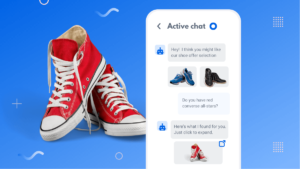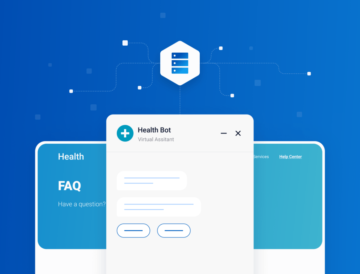If you’ve been away for the past few weeks or months—let’s say on holidays or on a spiritual retreat—you might have not heard about the Great Resignation yet.
It’s been all over the media and CEOs around the world are throwing up their hands. But what is really happening, and also, why?
In this article:
What is the Great Resignation?
The Great Resignation is a term initially coined by Anthony Klotz that is used to refer to an event of mass resignation among a country’s workforce. Simply put, how millions of workers are quitting their jobs at the same time.
Despite this initial concept dating back to 2019, it wasn’t until this spring-summer 2021 when we first experienced the event. In fact, according to US Government, between April and June, almost 12 million people left their jobs.
But why are so many employees saying ‘au revoir’ to their jobs?

Reasons and Challenges of the Great Resignation
Many are trying to really understand what’s led us to this situation, and how the job market is going to look like in the upcoming months.
How did we get here?
-
- Unsatisfied employees didn’t quit in 2020. Yes, we shouldn’t be surprised to know that some of the employees quitting their jobs today already wanted to do so last year, but didn’t because of Covid-generated uncertainty.
- Covid brought lifestyle and work disruptions. It ended long commutes, allowed remote work, and reminded many people what was really important. There is a reason why the search for remote jobs has gone up a whopping 460%.
- New generations have new demands. With millennials and Gen Z not being completely happy with the organization of traditional corporations, and start-ups already sparking a change in work culture with more flexible schedules, and remote work, some of them have started to take a leap and find jobs that better suit their needs.
Mass resignations: which challenges face HR teams?
The war on talent is driving HR teams crazy, as employees start looking for something more than ‘just a job’, creating a few challenges to overcome:
-
- High employee turnover rates lead to poor hiring experiences. A large number of openings makes it difficult for the HR team to answer all applications properly. Usually, this translates into poor application experiences leaving a bad brand image among candidates.
- Salaries are peaking. The situation creates an economic war on candidates and some good candidates might end up leaving the hiring process after several interview rounds, making HR teams lose time.
- Increased openings difficult onboarding process. HR teams have less time to onboard new employees, which can lead to frustrating experiences
What’s Are Employers Missing? 3 Tips to Increase Employee Retention
The question for HR managers & CEOs alike remains how to not only attract that talent but also to be able to keep employees in the long run while making sure they are happy and fulfilled.
Take a proactive approach
You need to understand and calibrate your employees’ mood to know where they are at, instead of waiting around to see what happens.
You can set up:
- Monthly personal meetings. Create a comfortable atmosphere and calibrate how the employee is feeling towards his/her workload.
- Anonymized or personal chatbot-based questionnaires. Use a proactive chat that pops up asking Yes/No questions employees can answer in one click. You’ll see great results!
- Reminder bots to help employees organize their work and better meet deadlines with lesser stress.

Automate onboarding processes to nail them!
- Never forget sending an email, with positive or negative feedback, to employees having undergone an interview process.
- Automate interview steps with a hiring chatbot as a first filter.
- Assist employees during onboarding with an HR help center or a dedicated bot that can answer questions and guide employees during their first days at their job.
Improve employee communication
Besides their daily tasks, how often do you communicate with your employees?
Not much, right?
Well, many of them have doubts about organizational matters, work permits, and more. Sometimes, they don’t dare to even ask them. Either because they’re afraid to be judged, or because they’ve heard some misinformation from colleagues.
So how to improve employee communication when employees don’t easily communicate? There are several approaches you can take:
- Create an internal FAQ section: Making information easily accessible to all employees will prove to them your commitment to transparency and reduce HR workload at the same time (which will make your HR team happier too!). Also, with search analytics, you will also get some insights into what employees care about and what they are looking for.
- Build a chatbot that can ask HR-related questions: Yes, I know your HR team can do that, but will it have the same effect? Show your employees you value privacy with a chatbot that can unbiasedly answer their doubts. As surprising as it might seem, 64% of employees say they’d trust an AI chatbot more than their own manager.
Improve your work culture and Employee Retention rate with AI
Inbenta’s employee interaction platform uses AI to understand search queries and demands from your internal and external collaborators.
- Create automated internal questionnaires
- Respond to any doubts in real-time, 24/7.
- Federate all sources of shareable HR content, from a single search bar.
- Reach out to employees with an automated chatbot to calibrate their needs.
Using NLP and AI, Inbenta understands what they say and ask, but also what they mean.
Ready to try?
Check out our similar articles
- "
- &
- 2019
- 2020
- 2021
- AI
- AI chatbot
- All
- among
- analytics
- Application
- applications
- April
- around
- article
- Automated
- Automation
- care
- change
- chatbot
- CNBC
- Communication
- content
- Corporations
- Creating
- Culture
- Dating
- DID
- driving
- Economic
- employees
- employers
- Event
- Experiences
- Face
- FAQ
- First
- Forbes
- Gen Z
- good
- Government
- great
- guide
- here
- Hiring
- holidays
- How
- How To
- hr
- HTTPS
- image
- Increase
- information
- insights
- interaction
- Interview
- IT
- Job
- Jobs
- large
- lead
- Led
- lifestyle
- Long
- Making
- Market
- Matters
- Media
- meetings
- Millennials
- million
- Misinformation
- months
- mood
- Onboarding
- organization
- People
- poor
- privacy
- Rates
- real-time
- reduce
- remote work
- Resignation
- rounds
- Run
- Search
- set
- So
- start
- started
- stress
- Talent
- the world
- time
- tips
- Transparency
- Trust
- us
- us government
- value
- war
- What is
- Work
- workers
- Workforce
- world
- year









